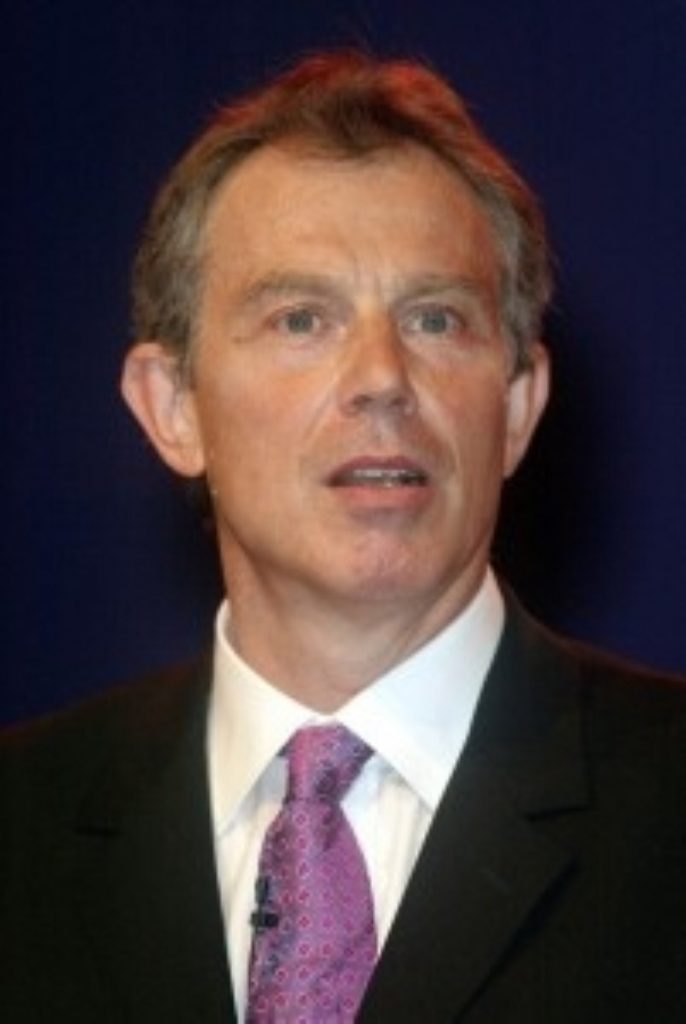Blair defends relationship with US
The Prime Minister has strongly defended himself against suggestions that the UK gets little in return for its support of America.
Tony Blair said that the UK’s two key relationships, with the US and Europe, were compatible, saying: “We have a good relationship, believe it or not, with France and Germany but I am not going to have the relationship with the United States of America subordinated to the interests of any other country.”
“I think most countries around the world would give their eye-teeth to have that relationship and it is a shame that here, it is seen somehow as a sign of mockery.” Mr Blair rebuffed.
The Prime Minister was speaking to the twice-yearly meeting of the Commons Liaison Committee, comprised of the chairs of the Commons select committees.


On Palestine, Edward Leigh suggested that George Bush had let Tony Blair down by not delivering a road map for Israel and Palestine. Mr Blair denied that he had spent political capital on supporting the US. He rejected that there had been a quid pro quo arrangement, and stated that he was working “as much as I ever have” to bring security to Israel and a two state solution.
The Prime Minister forcefully rejected the argument that the UK “goes along” with the US, in return for “some scraps”, describing this as a “parody”. George Bush has committed to a viable independent Palestinian state, which no other US president has done, the Prime Minister continued, and has ensured that the road map is supported.
The relationship with the US is an “important relationship that delivers for us”, he went on, as we share the similar values to the US, and agree with them on the need to spread ‘freedom, democracy and justice throughout the world’.
Mr Leigh argued that the country had a right to know what supporting the US had done for the UK, but the Prime Minister condemned as “pathetic” the view that there should be a list of gains. He stated that the relationship with the US was about more than trade-offs, and that this is a counter-productive way to look at it.
Turning to Guantanamo Bay, Mr Blair told MPs that a formal request as to the return of UK citizens had been made a few weeks ago directly to the President, and that discussions are ongoing. If we do have them back here, we need to ensure security, he added. Guantanamo Bay is “an anomaly that at some point has to be brought to an end”, he stated.
The Prime Minister hoped that this could be resolved “reasonably soon”, and did not think that the US was being unreasonable by demanding security for these people. The Prime Minister said “I am not yet satisfied that we have the necessary machinery in place, but we are working on this”. From looking at individual cases, he would have to be clear that there is sufficient structure to protect security, he stated. While he did not want to disclose details of the cases, he told the committee that the capture of prisoners “did not arise out of some sort of random event”.
On Weapons of Mass Destruction (WMD) Mr Blair admitted that: “we have not and may not find them”.
This does not mean that there was never a threat, the Prime Minister continued, suggesting that WMD may have been “hidden, removed or destroyed”. The Iraq Survey Group have not said that Iraq was not a threat, he added, and have stated that Iraq breached UN resolutions.
George Young suggested that it had been a mistake to justify the invasion on the basis of WMD and not regime change. Tony Blair maintained that the purpose of the action had been to enforce UN resolutions, warning against going to the “extreme” of stating that the fact that there were no WMD means there was no threat. There is “very clear evidence” that Iraq had “strategic capability and intent”, he stated, and the question now is the nature of the threat Iraq had posed. The Prime Minister concluded that he would not accept that Iraq was not a threat in WMD terms.
Defence Committee Chair Robert Key posed the final question, asking about possible cuts in defence spending, to which the Prime Minister responded by stating he would be “extremely surprised” to see defence cuts.

